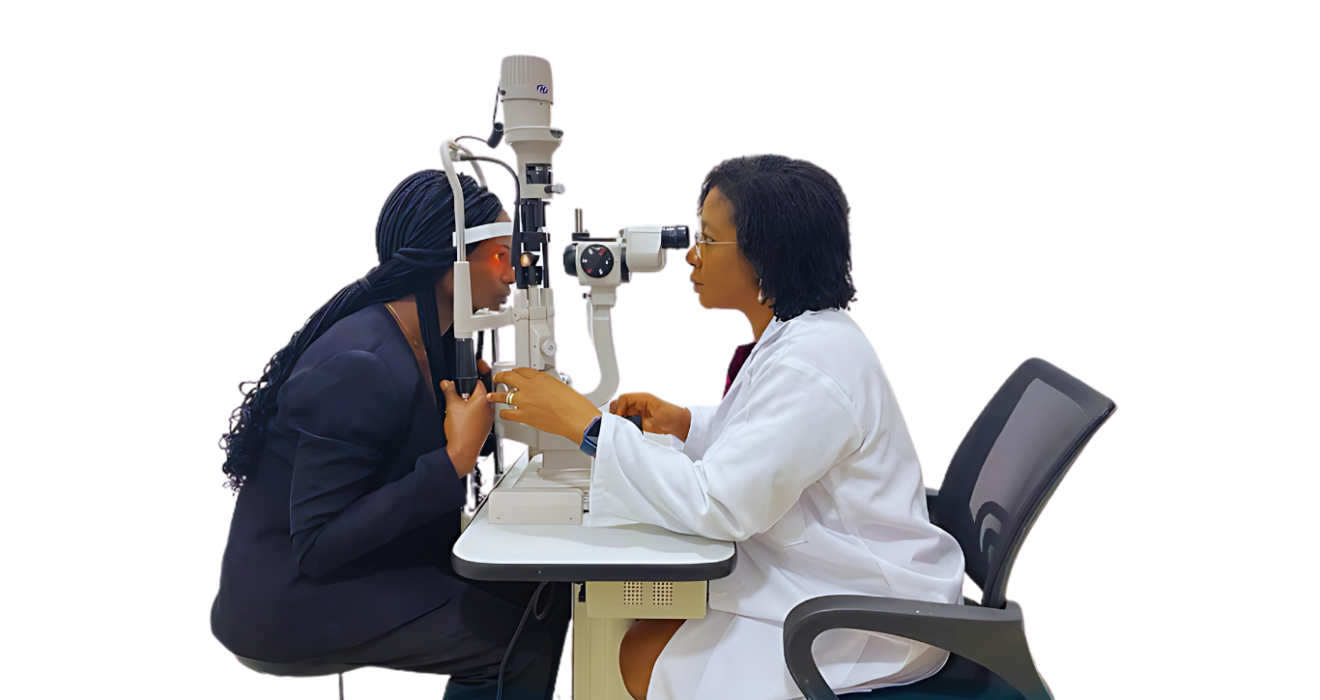WHO IS AN OPTOMETRIST?
An optometrist is a health care professional who provides primary vision care. That means they do wellness checks of your eyes. Known as a comprehensive eye exam, this is an important part of your yearly health checkup.
If you have eye or vision problems, your optometrist is often your first stop. In most cases, your optometrist can treat the problem themselves. But if your problem is outside the scope of their practice or requires certain surgical interventions, they can refer you to a medical doctor called an ophthalmologist.
THE SCOPE OF PRACTICE OF AN OPTOMETRIST IN NIGERIA.
Optometrist is an independent primary eye care provider who examine, diagnose, treat and manage diseases and disorders of the visual system, the eye, and associated structures; as well as diagnose related systemic conditions. They examine the internal and external structure of the eyes to diagnose eye diseases like glaucoma, cataracts and retinal disorders, systemic diseases like hypertension and diabetes, and vision conditions like nearsightedness, farsightedness, astigmatism, and presbyopia.
Optometrists also examine the eye to determine the patient’s ability to focus and coordinate the eye and to judge depth and see colors accurately. They prescribe spectacle corrective lenses and contact lenses, low vision aids, vision therapy and drugs to treat eye diseases as well as perform minor emergency procedures. As a primary eye care provider, Optometrist is an integral part of the health care team and entry points into the health care system. They are skilled in the co-management of care that affects the eye health and vision of their patients; and an excellent source of referrals to other health care professionals.
WHAT ARE THE QUESTIONS YOU SHOULD ASK AN OPTOMETRIST?
When visiting an optometrist, you can ask questions about your past and current vision symptoms, potential eye conditions, treatment options, preventative care, and your prescription needs, including:
About your vision symptoms:
What is causing my blurry vision/dry eyes/ headaches when looking at screens?
Why do I see halos around lights at night?
Is it normal to experience eye fatigue after reading for a long time?
Do you think my vision changes are related to any underlying health issues?
About potential eye conditions:
What are the risks of developing glaucoma or macular degeneration based on my family history?
Could I have cataracts developing?
How often should I be screened for diabetic retinopathy if I have diabetes?
About treatment options:
What type of glasses or contact lenses would best suit my needs?
Are there any alternative treatments for my condition besides glasses/contacts?
What are the potential side effects of the prescribed eye drops?
About preventative care:
What can I do to protect my vision from further damage?
How often should I have a comprehensive eye exam?
What are the benefits of wearing sunglasses with UV protection?
About your prescription:
What is my current prescription strength?
Can I get bifocal or progressive lenses?
How do I know if my prescription needs to be updated?
General questions:
What tests will be performed during my eye exam?
What does the result of my eye pressure test mean?
Can you explain the different types of eye diseases and their symptoms?
What should I do if I experience any sudden vision changes?
Remember to always ask any questions you have about your specific concerns and to provide detailed information about your vision symptoms to your optometrist for an accurate diagnosis and treatment plan.
REASONS TO SEE AN OPTOMETRIST
An important part of your overall health is the wellness of your eyes.
Eye health is not something to take for granted, and it will not take care of itself.
A person cannot diagnose eye problems without the aid of an eye doctor.
Eye conditions are highly prevalent, especially as you get older. Many things can affect your risk of developing eye conditions. Knowing your risk is essential, as many common eye conditions like glaucoma, macular degeneration, and diabetic retinopathy cause irreversible vision loss. They also usually don’t have any symptoms in their early stages. The only way to detect these eye conditions in their early stages and receive effective treatment is to have your eyes examined by an eye doctor. Your optometrist can help assess your risk for various eye conditions by examining your eyes to ensure they are healthy. Many factors affect your risk for eye conditions, including family medical history and ethnicity. But perhaps the most significant risk factor is age. Just being over 40 puts you at higher risk for several eye conditions. The older you get, the higher your risk becomes.
When was the last time you went to the eye doctor? You should regularly see your eye doctor to ensure your eyes are healthy. If you have refractive errors like nearsightedness, farsightedness, and astigmatism, you’ll need to see your eye doctor more. Having refractive errors makes it necessary to use visual aids like glasses and contact lenses to see clearly.
GO SEE YOUR OPTOMETRIST IF YOU EXPERIENCE ANY OF THE FOLLOWING SYMPTOMS:
You notice your vision is getting worse
Blurry vision
Double vision
Circles that look like halos around lights
Eye pain, especially if it doesn’t go away after a day or two
Eye redness and irritation
Floaters like specks that float before your eyes
Flashes of light
Light sensitivity
WHAT TO EXPECT AT AN OPTOMETRIST VISIT
After this, your optometrist will examine your eyes using several different tools and assessment methods, including:
Preliminary eye examinations
Tests for glasses
External eye examinations
Internal eye examinations
If you already have glasses or contact lenses, make sure you wear them or go with them to your appointment. And bring a pair of sunglasses if you think you’ll have your eyes dilated. Bright sun or indoor lights may be uncomfortable or painful for a few hours until the eye drops wear off.
When you have a comprehensive eye exam, your optometrist will usually start by asking about:
Any eye or vision problems you’re having?
When your eye or vision symptoms started?
Any environmental or work conditions that may affect your vision?
Your personal and family medical history, especially any known eye conditions in your family and medicines you’re taking?
An optometrist is a health care professional who will likely be your first point of contact for almost any condition that affects your eyes or vision. They also do wellness checks of your eyes, which is an important part of your yearly health checkup.



